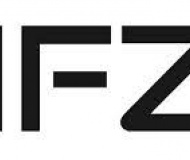Opinion of Alexander Shushin on the recognition of tokens as the exchange commodity (response to the request by Bitnewstoday)
News:
Date added: 01.11.2018The judge rendered a decision to recognize tokens as the exchange commodity. In what way will it affect the regulation of the cryptocurrency market in the US?
How will this precedent influence the development of the US cryptocurrency industry?
Will this precedent become an instrument of influence (especially on the SEC) for market players? This means that the Commodity Futures Trading Commission (CFTC) regards crypto as a commodity (and currently the court is on its side), while the SEC regards it as securities. In what manner will this conflict be solved?

To date, the much debated ruling by Judge Ray Zobel, in my opinion, will not affect the regulation of the cryptocurrency market in the United States. The fact is that in the case of CFTC vs. My Big Coin Pay Inc., representatives of My Big Coin Pay Inc. petitioned for termination of the proceedings due to the fact that virtual currencies (including cryptocurrencies) are not an underlying asset (commodity) within the meaning of the Commodity Exchange Act: “we believe that the My Big Coin cryptocurrency can not be considered a Commodity, since My Big Coin is not a futures contract or trading in derivative financial instruments,” - Catrin Cooper, Crater’s lawyer mentioned.
According to representatives of My Big Coin Pay Inc., the regulation of such virtual currencies is beyond the jurisdiction of the CFTC (Commodity Futures Trading Comission, hereinafter referred to as CFTC).
The Commodity Exchange Act includes to the notion of underlying assets the following: “wheat, cotton, rice, corn, oats, barley, rye, flaxseed, grain sorghum, mill feed, oil, eggs, Irish potatoes, wool, wool tops, fats and oils (including lard, cottonseed oil, peanut oil, soybean oil and all other fats and oils), cotton flour, cotton seed, peanut, soybean, soy flour, livestock, animal products and frozen concentrated orange juice, as well as any other goods and products. [...] ”.
Judge Ray Zobel rejected the plaintiff’s motion for termination of the proceedings and ruled that the virtual currencies are under the jurisdiction of the CFTC, since: “Both My Big Coin and Bitcoin may be in the whole (author's note: but should not be) virtual currencies, and bitcoin futures are currently being traded on US exchanges,” and, accordingly, the court will hear the case on its merits.
The court’s ruling that the court will consider the case is not a final decision on the merits and, accordingly, cannot be a precedent. In view of this, before the final decision is taken, it is early to say that the judge’s interim decision not to terminate the case will somehow affect the development of the cryptobranch in the United States and become certain instrument of influence.
Indeed, if Judge Ray Zobel would have satisfied the request of My Big Coin Pay Inc., and thus the case would have been dismissed, and the decision itself would not have been appealed, in this case the other courts, guided by the principle “stare decisis [et non quieta movere]” (lat .: to stand by things decided [and not derogate from the settled], the basic principle of case law, which obliges the judges to consider previous decisions as a guide for resolving such cases in the future) would have to decide the cases according to the decision taken depending on the similarity of the cases rendered. A classic example of how precedents work is as follows:
Initially, the court took one decision on the case, the essence of which was as follow: “A son killed his father [in order to inherit]”, and later the case went to court: “a son killed his father [defending himself]”. Naturally, these two cases will be resolved in different ways, despite the the fact of the deprivation of life of the father by his son takes place in both cases, but the circumstances of the case are different. In the same way, in my opinion, the courts will resolve cases related to cryptocurrency, in particular, guided by the principle of the predominance of essence over form: if a token is a security, then it will be regulated by the Securities and Exchange Commission (SEC). And if a certain product (within the meaning of the Commodity Exchange Act), then it will be regulated by the Commodity Futures Trading Commission (CFTC).
Commentary is posted at: https://bitnewstoday.com/news/regulation/sec-vs-cftc-how-the-crypto-market-will-avoid-the-judicial-system-tensions/
© Alexander Shushin, Law & Trust International Lawyer, 2018

















